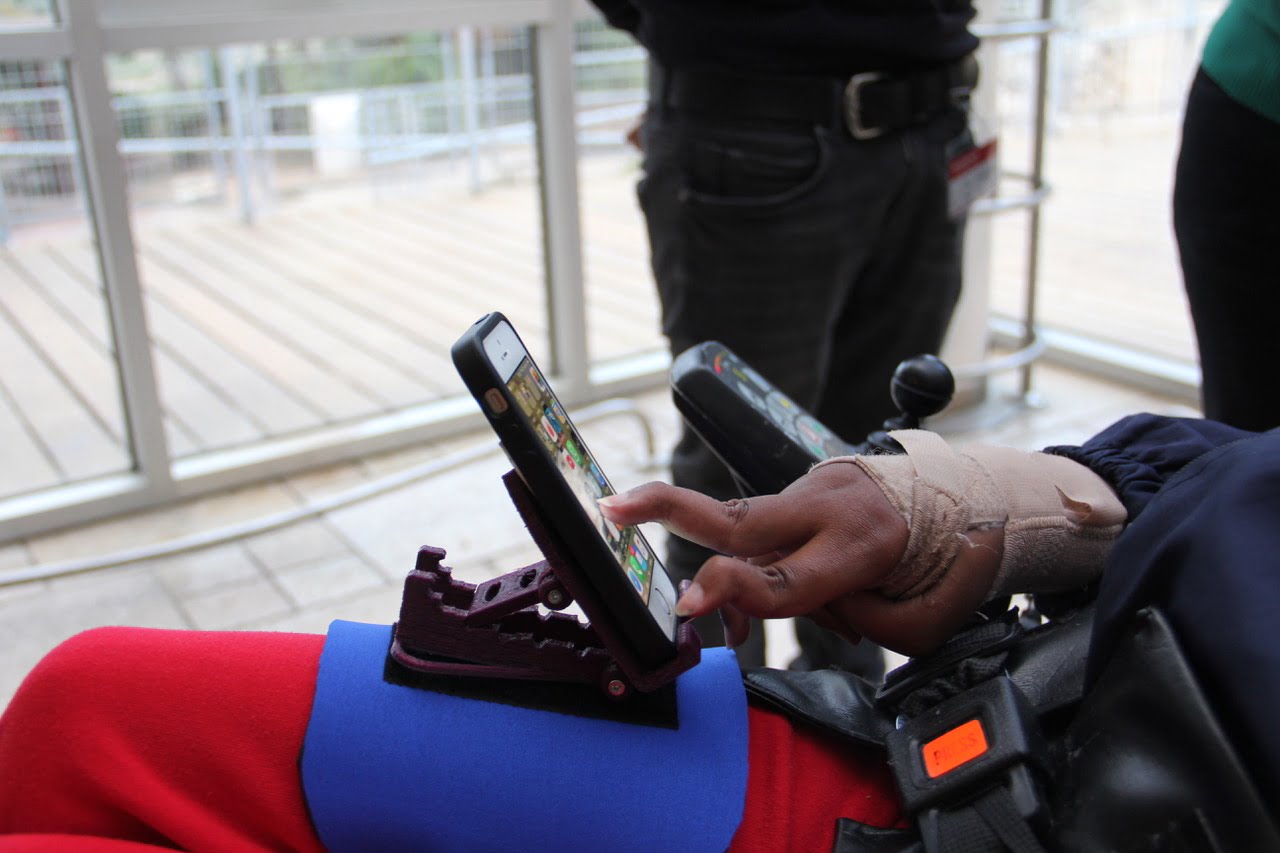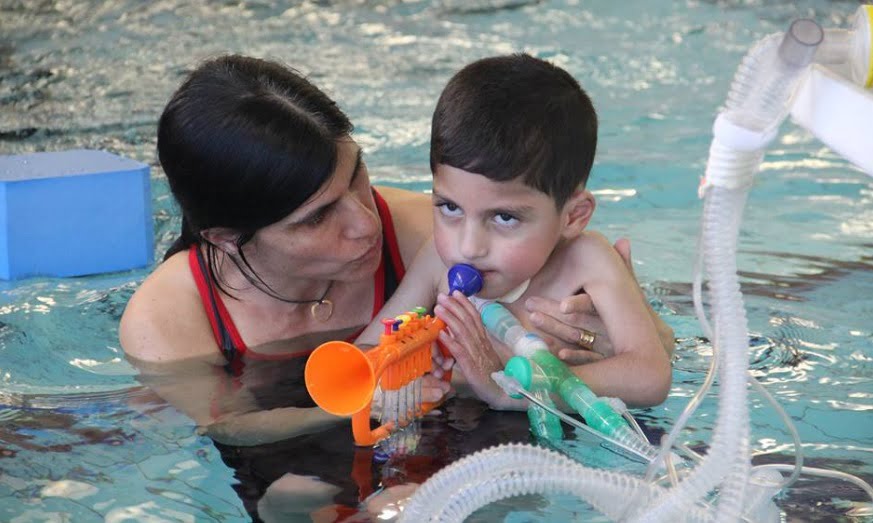Israel’s ALYN Hospital has opened an innovation center for entrepreneurs and researchers to develop devices and technologies for children with special needs. The Jerusalem hospital, founded in 1932, is considered a world leader in pediatric rehabilitation for physical disabilities.
According to the World Health Organization, more than 1 billion people around the world live with a physical disability, and of those 90 million are children. Now, ALYN – with its broad range of expertise and innovative approach – is tapping into Israel’s technological ecosystem to open an innovation lab called ALYNnovation, which will ultimately extend the reach of the hospital’s care.
ALYN Hospital’s lab provides the physical space, technical equipment, experts, and target market to develop products. Director of ALYNnovation, Danna Hochstein Mann, calls it a unique “one-stop-shop” for assistive technology development.
SEE ALSO: UPnRIDE: This Segway-Like Vehicle Will Help Quadriplegics Stand Tall
“Incredibly empowering”
The lab has two arms: PELE (which in Hebrew means “wonder,” and is also a Hebrew acronym for Solutions for Children of ALYN), and ALYNnovation.
PELE seeks to help individual children solve a particular problem that does not have an off-the-shelf solution. For example, PELE recently helped a 13-year old boy without the full range ability to use his arms lay tefillin (Hebrew script worn by observant Jews for prayer) on his head for his Bar Mitzvah. “There aren’t that many kids around the world that want to lay tefillin and can’t reach their head,” Mann tells NoCamels. “There is no off-the-shelf solution for this.”
PELE constructed a contraption that enabled the boy to pull a string, bend his head down, and put the tefillin up on his head. “For a child like this, every inch of independence that is given to him is incredibly empowering,” Mann says. “It gives you the chills to see the expression on this kid’s face when he realizes that he just did this by himself.”
SEE ALSO: Safe & Sound: AngelSense’s GPS Tracker Gives Parents Of Autistic Kids Peace Of Mind
After children and parents present their challenge, ALYN’s PELE team will try to solve it for $55 or less. “These solutions are customized, personalized solutions at affordable prices,” Mann tells NoCamels.
Sign up for our free weekly newsletter
SubscribeALYNnovation works as a startup incubator
While PELE provides solutions to specific problems, ALYNnovation works as a startup incubator, identifying innovations that can benefit a broader audience of children with special needs, and then commercializing the product to bring it to a global market.
For example, Wheelchairs of Hope, an Israeli nonprofit organization committed to providing children in developing countries with wheelchairs, has partnered with ALYN to mass produce wheelchairs that sell for less than $100. The organizations distribute hundreds of wheelchairs across Africa, Europe, the Far East, and the Middle East.
ALYNnovation enables the hospital to reach a wider audience, but it will also help ALYN to become self sustainable. “We are designing a new model of philanthropy where the donations that we receive now are helping us to establish activity that will generate its own revenue,” Mann says. “This is the model we came up with, I think it gives donors the assurance that our motivations are aligned.”

ALYN Hospital’s new innovation center will be a one-stop shop for assistive technology entrepreneurship. Courtesy
Aside from generating its own revenue, ALYN has also garnered support from Israel’s National Insurance Fund and the Jerusalem Development Authority. The hospital’s foundation is hoping to raise an additional $2 million to fund the first few years of activity.
“Gaining access to education, information and communication”
Most importantly, ALYN will continue to help children. “When we see kids with disabilities outside of ALYN, often we are seeing them through the lens of what they can’t do,” Mann says. “How is that child in a wheelchair going to get down from the sidewalk to cross the street? How is the child going to get down the slide at the playground? But here, it is a place of ability.”
She concludes that, “through technology, children are gaining access to education, information and communication, that they haven’t been able to before.”
Photos and video: Courtesy
Related posts

Editors’ & Readers’ Choice: 10 Favorite NoCamels Articles

Forward Facing: What Does The Future Hold For Israeli High-Tech?

Impact Innovation: Israeli Startups That Could Shape Our Future




Facebook comments